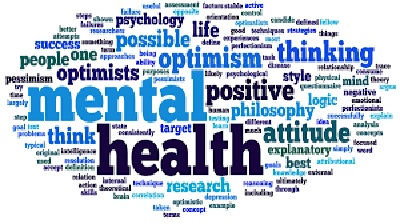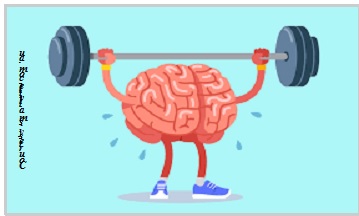Last Updated on September 11, 2020 by FUNAAB
The human brain has been described as a muscle, which if not constantly checked medically and through regular fitness routine, may lose its importance. Having a solid and functional mental health is beneficial to the overall development of the human body and mind because human mental health has a great deal of control on emotions regarding how we think, feel, behave, cultivate new behaviour, connect with friends, and react to issues; be it good or bad. In life, we face many challenges that may want to cause emotional setbacks, trauma and pains, but one thing we must note is the fact that while we go through life’s challenges, our ability to bounce back and make our lives worth living again would further prepare us for challenges ahead.
Helpguide.org states that “We all go through disappointments, loss and change, and while these are normal parts of life, they can still cause sadness, anxiety and stress. But just as physically healthy people are better able to recover from illness or injuries, people with strong mental health are better able to bounce back from adversity, trauma and stress, and this ability is called resilience”. In other words, we must nurture our mental health by learning how to manage stress. According to Mentalhealth.gov, mental health includes our emotional, psychological and social well-being, which affects how we think, feel and act. It also helps determine how we handle stress, relate with others, and make choices. Mental health is important at every stage of life, from childhood and adolescence through adulthood.
Healthdirect.gov.au explains that the following constitute the main groups of mental disorder: mood disorders such as depression or bipolar disorders, anxiety disorders, personality disorders, psychotic disorders such as schizophrenia, eating disorders, trauma-related disorders such as post-traumatic stress disorders, and substance abuse disorders. Major factors such as biological make up like genes or brain chemistry, life experiences including trauma or abuse, and family history of mental health problems, among others, have been discovered to be some of the underlying factors that contribute to the high rate of mental health problems in the society today.
Mentalhealth.gov further gives some of the likely early warning signs of mental health problems to comprise: eating or sleeping too much or too little, pulling away from people and usual activities, having low or no energy, feeling numb or like nothing matters, and feeling helpless or hopeless. Others are smoking, drinking, or using drugs more than usual, and feeling unusually confused, forgetful, angry, upset, worried, or scared as well as experiencing severe mood swings that cause problems in relationships. Suggestions on the ways to maintaining positive mental health include getting professional help, connecting with others, staying positive, getting physically active, helping others, getting enough sleep and developing coping skills.
Mental fitness is just as important as physical fitness and should not be neglected because a healthy body can prevent various health conditions such as diabetes and heart disease, among others. The ability to maintain a healthy mental health would go a long way in keeping one strong and healthy. Toronto.cmha.ca reveals that when we are mentally healthy, we enjoy our life and environment and the people in it. We can also be creative, learn, try new things and also take risks. Moreover, we are better able to cope with difficult times in our personal and professional lives just as physical fitness helps our bodies to stay strong, mental fitness helps to achieve and sustain mental health.

However, it is believed that people who are conscious of their mental health and engage in a regular fitness routine are always energetic, sleep better at night, have sharper memories, feel more relaxed and positive about themselves and their lives. Helpguide gives the benefits enjoyed by people, who are mentally healthy as having sense of contentment, zest for living and the ability to laugh and have fun, ability to deal with stress and bounce back from adversity, sense of meaning and purpose in activities and relationships, flexibility to learn new skills and adapt to change, balancing work and play, ability to build and maintain fulfilling relationships, and having self-confidence and high self-esteem.
How can we improve our mental health and keep it in check constantly? Betterhealth.vic.gov highlights the tips as having exercise for 30 minutes daily to aid the delivery of oxygen to the brain to improve the memory, reasoning abilities and reaction times; reading often and widely by keeping an active interest in world matters; boosting Vitamin B levels by eating plenty of wholegrain cereals, leafy greens and dairy foods; learning a new language, doing the cryptic crossword or playing chess; taking time to relax for excess stress hormones like cortisol can be harmful to the brain; taking up a new hobby by learning something new that gives the ‘grey matter’ a workout and builds neural pathways in the brain. Furthermore, actively-managed health conditions such as diabetes or heart disease that can affect mental performance if not diagnosed and treated; having regular check-ups with the doctor to prevent future problems; engaging in stimulating conversations; and talking to friends and family about a wide range of topics.
Askthescientists.com also suggests the following steps to test cognitive skills to find the level of mental fitness: assessing short-term memory; putting the working memory to test; looking at how the sensory memory stacks up; and testing cognitive skills and measuring neuroplasticity. Exercise is a powerful depression-fighter that helps to promote all kinds of changes in the brain including neural growth, reduced inflammation and new activity patterns that promote feelings of calm and well-being. It also releases endorphins, powerful chemicals in the brain that energise the spirits and make one feel good. Finally, we should always remember that no matter the age or fitness level, maintaining a good mental health is essential to living a balanced life.









